About Beaches Recovery
Welcome to Beaches Recovery, a world-class provider of addiction recovery services. Our highly trained and experienced staff provides a comprehensive range of services to help our clients overcome their addiction and start on the path to recovery. We offer a wide range of services, including alcohol rehab, dual diagnosis, opioid addiction, adult program, LGBTQ friendly rehab, men’s rehab, women’s rehab, young adult rehab, outpatient rehab, inpatient rehab, aftercare support, sober living homes, partial hospitalization program, detox treatment, cognitive behavioral therapy, creative arts therapy, dialectical behavior therapy, experiential therapy, eye movement desensitization and reprocessing, family therapy, group therapy, individual therapy, rational behavior therapy, recreational therapy, and trauma therapy. We also offer a wide range of sober living options, including sober living homes and apartments, to help our clients transition back into society. No matter what your situation, we are here to help you overcome your addiction and start on the path to recovery.
Addiction Treatment Programs
Alcohol Rehab
The goal of an alcohol rehab in Florida is to give you the tools and skills you need to achieve long-term recovery. Alcohol rehab may include detox, inpatient treatment, and/or outpatient care. You’ll learn the roots of addiction and learn how to build a substance-free life.
Dual Diagnosis
Mental health concerns and substance use are often linked, which is known as a dual diagnosis. The right rehab in Florida can help you break free. A dual diagnosis program uses evidence-based approaches to help you overcome both your mental health concerns and substance use. This may include mental health medication, counseling, and more.
Opioid Addiction
In Florida, rehab provides a combination of therapy and education to help clients overcome opioid addiction. In an opioid treatment program, you’ll not only receive treatment, but you’ll participate in activities, receive peer support, and learn how to have fun without substance use.
Adult Program
An adult program in Florida addresses the recovery needs of clients in this life stage and gives them the tools they need to succeed. An adult program gives you the skills you need to overcome addiction and address the unique challenges of managing your work, relating to your family, raising children, and balancing a variety of other responsibilities
LGBTQ Friendly Rehab
An LGBTQ+ friendly rehab in Florida will understand the unique issues faced by this community that can make recovery harder. Along with traditional evidence-based treatment, clients may receive trauma-focused care, peer support, and classes in overcoming specific challenges.
Men's Rehab
Men’s rehab programs in Florida address the unique needs of men in a safe, gender-specific environment. A men’s program gives you the skills you need to overcome addiction and address challenges such as family relationships, fatherhood, emotional management, and more.
Women's Rehab
A women’s rehab in Florida addresses the unique needs women have and allows them to build relationships in a gender-specific environment. A women’s program gives you the skills you need to overcome addiction and address your unique challenges, such as motherhood, building a career, having healthy relationships, and more.
Young Adult Rehab
Young people need unique support, and a young adult rehab in the state of Florida helps them learn new life skills while overcoming addiction. A young adult program gives you the skills you need to overcome addiction and address the unique challenges of transitioning from the teen years to adulthood.
Insurance Coverage
Private insurance
One of the best ways to pay for rehab in Florida is to use private insurance, which can pay for some or all of the cost. Contact your insurer to get full details, such as what centers are in-network with your plan and what out-of-pocket costs you might be responsible for.
Self-pay options
Using self-pay in Florida to pay for rehab means writing a check, using a medical loan, or having money electronically sent to the treatment center. Be sure to check on the fee structure, which may depend on the level of care.
Financing available
When looking for ways to pay for rehab in Florida, consider asking if financing options are available. Treatment centers may have financing options such as payment plans, grants, or scholarships. You may also decide to get a medical loan to pay for treatment.
Sliding scale payment assistance
In Florida, finding a center with a sliding scale payment plan is one option when it comes to making rehab more affordable. A sliding scale allows those in need to pay less for treatment based on their income and family size. You may have to provide financial documentation.
Levels of Care
- 1
Detox Treatment
Don’t be afraid of detox in Florida. It’s the first step toward building a new life you love. Detox is often medically supervised, helping it be safe and as comfortable as possible. Medical supervision may include FDA-approved medication and other treatments.
- 2
Inpatient Rehab
Inpatient treatment in Florida allows clients to live full-time in the facility while getting the care they need. Some of the elements of inpatient treatment include individual and group counseling, skill-building, relapse prevention, and help with essentials like employment and housing.
- 3
Outpatient Rehab
If you want to attend school or work during rehab, consider outpatient treatment in Florida. You’ll live independently except when you’re attending rehab. Outpatient treatment sessions generally last 60 to 90 minutes and may include discussing a specific issue, sharing wins and challenges, education about specific topics, or developing life skills.
- 4
Aftercare Support
Aftercare in Florida is focused on helping you access the resources and ongoing support you need to stay sober long-term. Aftercare may include connections to 12-step and other support groups, housing and employment resources, community recovery centers, and more.
- 5
Sober Living Homes
During sober living in Florida, clients will receive ongoing support that makes it easier to practice their new habits and maintain recovery. Sober living may provide resources such as connections to 12-step and other support groups, employment resources, info about community recovery centers, and more.
- 6
Partial Hospitalization Program
Attending a partial hospitalization program (PHP) in Florida allows you to get evidence-based care without living in the facility, helping you establish long-term recovery. PHPs don’t just involve therapy, you also enjoy activities and outings, and many programs have holistic treatment like yoga, mindfulness, and more.
Therapies
Cognitive Behavior Therapy
Cognitive behavioral therapy in Florida gives you tools to challenge your thinking patterns. During treatment, you’ll examine common thought distortions, identify learned negative behaviors, and develop the skills necessary to consciously choose a different reaction to each situation.
Creative Arts Therapy
In Florida, creative arts therapy is a holistic therapy that is widely used in addiction treatment alongside other treatment approaches. During treatment, the art therapist may ask you to draw specific things related to recovery, help you interpret your feelings, and guide you in building toward new habits.
Dialectical Behavior Therapy
Dialectical behavioral therapy in Florida gives you tools to learn new behaviors to improve and change your life. During treatment, you’ll unlearn unwanted thoughts and behaviors, practice and reinforce positive coping strategies, and empower yourself to create the life you want.
Experiential Therapy
If you’re struggling with substance use in Florida, experiential therapy can help you work through emotions so you can make positive changes. During experiential therapy, you’ll work through activities that will help you work through past experiences and emotions. Afterward, you’ll have the tools you need to address problems and manage triggers in a healthy way.
Family Therapy
Overcoming substance use is easier if you have support from your loved ones. During family therapy in Florida, you can address challenging relationships and family conflicts to restore peace and make recovery easier. Family therapy is only one element of rehab treatment, along with activities, peer support, individual and group counseling, relapse prevention, and more. Together, all these methods support you in establishing long-term recovery.
Group Therapy
Overcoming substance use is easier if you’re not alone. During group therapy in Florida, you’ll hear others’ perspectives and get the support you need. Group therapy sessions generally last 60 to 90 minutes and may include discussing a specific issue, sharing wins and challenges, education about specific topics, or developing life skills.
Individual Therapy
Individual therapy in Florida helps clients overcome substance use by providing individualized, confidential support. Individual therapy is a normal part of evidence-based treatment programs, and may be a part of inpatient treatment, outpatient care, or both. Topics include processing past events that may have contributed to substance use, learning new life skills, and relapse prevention strategies.
Rational Behavioral Therapy
In Florida, rational behavior therapy is one of the evidence-based approaches widely used in addiction treatment. Rational behavior therapy is a common part of both inpatient and outpatient substance use treatment, and may be used to help with skill-building, overcoming problematic behavior, and managing substance use triggers.
Recreational Therapy
Receiving recreational therapy in Florida helps you develop the ability to cooperate, manage stress, and create a better life for yourself. During treatment, the recreational therapist will have specific activities and games that will challenge you, require teamwork, and allow you to build confidence in your ability to succeed.
Trauma Therapy
Many people with addiction issues in Florida use substances to decrease difficult feelings such as guilt, shame, fear, and more. Trauma-informed therapy can help you understand where these feelings come from and how to deal with them in a better way. Trauma-informed therapy may be part of both inpatient and outpatient substance use treatment and may include peer support, mental health medications, mindfulness, and developing new coping strategies.
Eye Movement Desensitization and Reprocessing
Accreditations
Location
Contact Beaches Recovery
Top Drug Rehab Centers in Florida
-
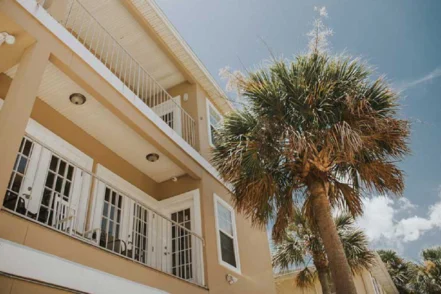 Florida
FloridaBeaches Recovery
390 16th Ave South Jacksonville Beach, Florida 32250
-
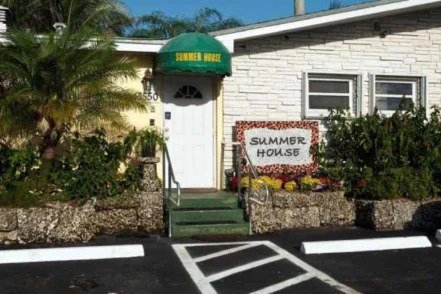 Florida
FloridaSummer House Detox Center
13550 Memorial Highway Miami, Florida 33161
-
 Florida
FloridaLakeview Health
1900 Corporate Square Blvd Jacksonville, Florida 32216
-
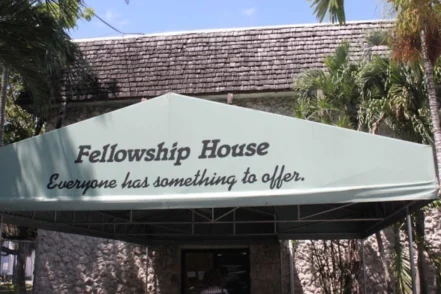 Florida
FloridaFellowship House Miami
5711 South Dixie Highway Miami, Florida 33143
-
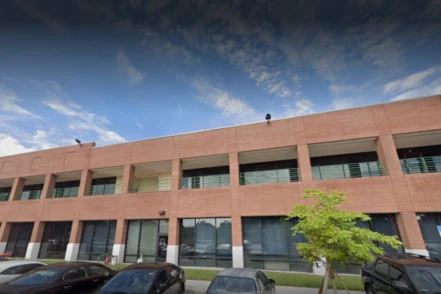 Florida
FloridaCompassion Behavioral Health
1 Oakwood Blvd, Suite 265 Hollywood, Florida 33020
-
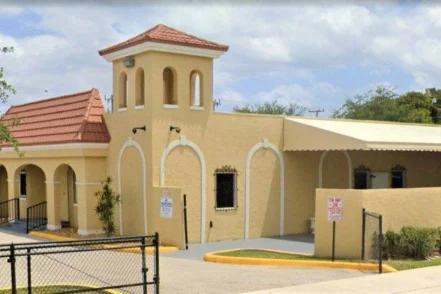 Florida
FloridaAmbrosia Treatment Center West Palm Beach
222 Picadilly Street West Palm Beach, Florida 33407
-
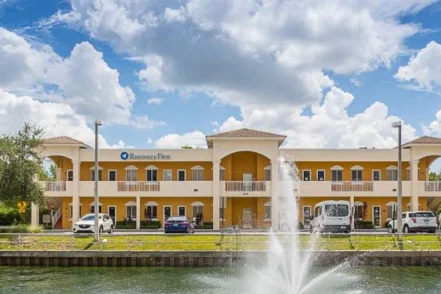 Florida
FloridaRecovery First Treatment Center Hollywood
4110 Davie Road Extension Hollywood, Florida 33024
-
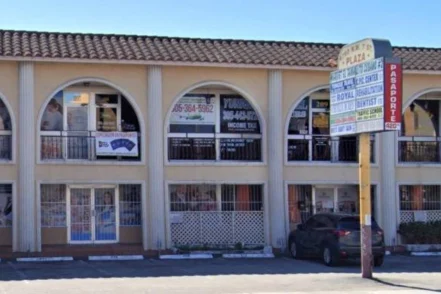 Florida
FloridaComprehensive Psychiatric Center 7th Street
4790 Northwest 7th Street, Suite 102 Miami, Florida 33126
-
 Florida
FloridaAspire Health Partners Addictions Receiving Facility ARF
712 West Gore Street Orlando, Florida 32805
-
 Florida
FloridaUnited Recovery Project Hollywood
5900 Johnson Street Hollywood, Florida 33021
-
 Florida
FloridaAdaptive Center Coral Way
2828 Coral Way, Suite 103 Miami, Florida 33145
-
 Florida
FloridaEvolutions Treatment Center Miami Fort Lauderdale
2900W Cypress Creek Road, Suite 2 Fort Lauderdale, Florida 33309
-
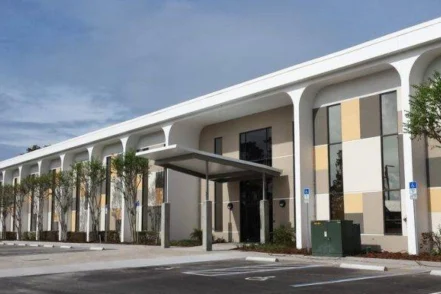 Florida
FloridaOrlando Recovery Center Drug and Alcohol Rehab
6000 Lake Ellenor Drive Orlando, Florida 32809
-
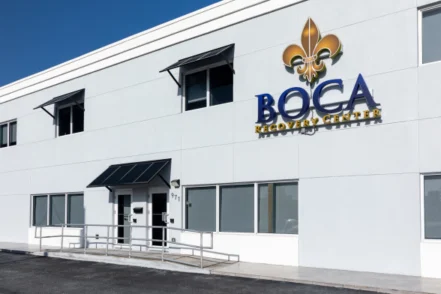 Florida
FloridaBoca Recovery Center Powerline Road
21301 Powerline Road, Suite 311 Boca Raton, Florida 33433
-
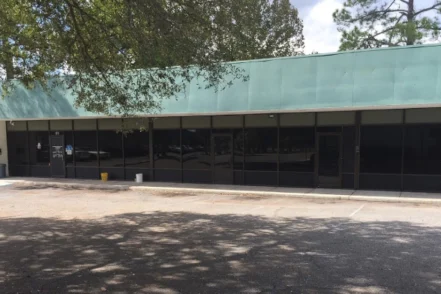 Florida
FloridaNew Season Duval County Treatment Center
590 Ellis Rd, Building 4 Jacksonville, Florida 32254
Other Popular Florida Cities
Browse by Florida cities
- Pahokee
- Palatka
- Palm Bay
- Palm Beach
- Palm Beach Gardens
- Palm Beach Shores
- Palm City
- Palm Coast
- Palm Harbor
- Palm Springs
- Palmetto
- Panama City
- Panama City Beach
- Pembroke Pines
- Pensacola
- Perry
- Pinellas Park
- Plant City
- Plantation
- Pompano Beach
- Port Charlotte
- Port Orange
- Port Richey
- Port St. Lucie
- Punta Gorda


